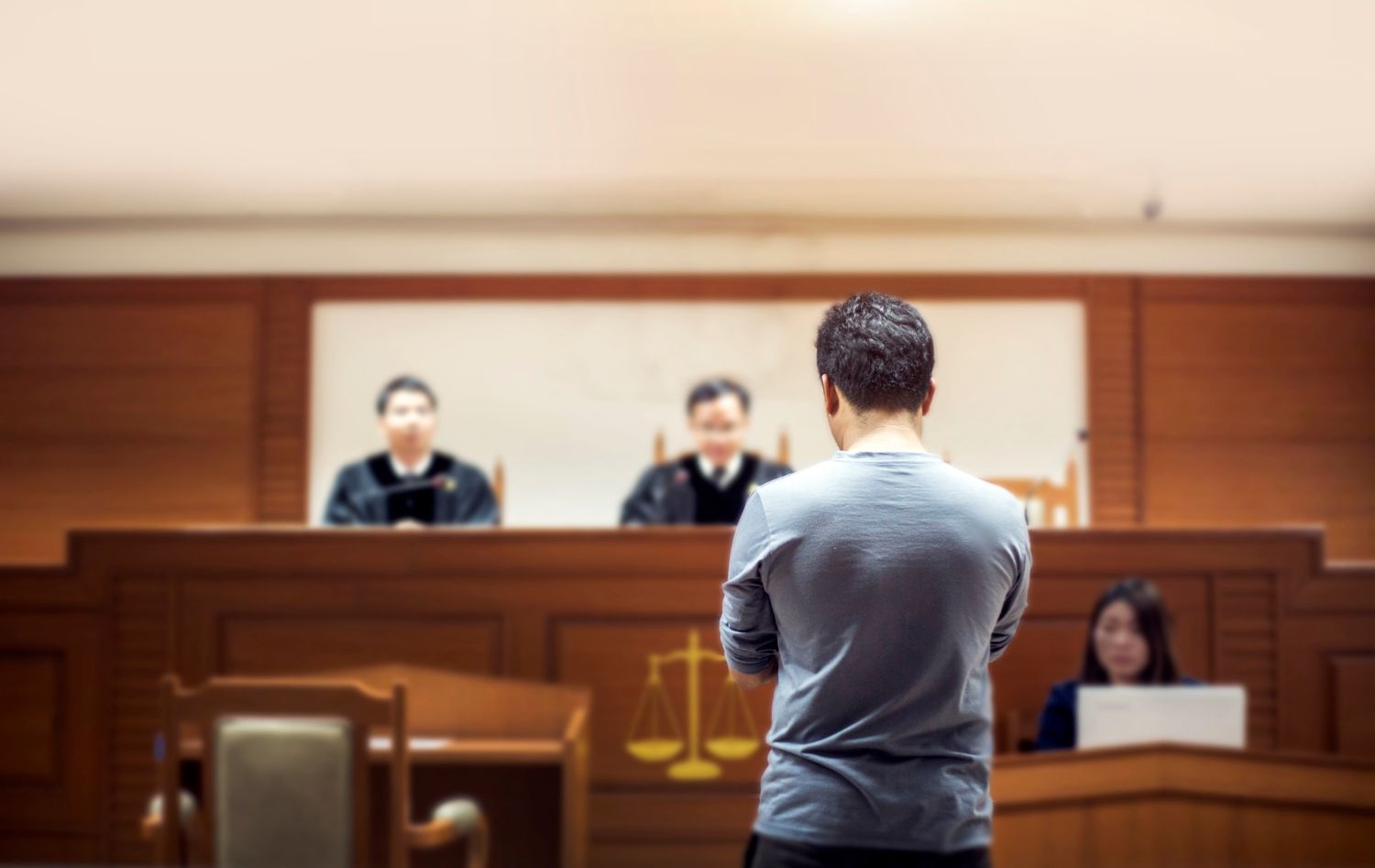Can You Go to Jail at an Arraignment?: Understanding the Legal Implications
Written by Law Office of Rolando Cantú, reviewed by Rolando Cantú
Can You Go to Jail at an Arraignment?: Understanding the Legal Implications
Criminal cases can get complicated and involve many different types of proceedings. One important court appearance is the arraignment. But, what happens at an arraignment? when does an arrangement occur? and, can you go to jail at arraignment?
In this blog, we'll answer these questions and discuss the legal implications of attending an arraignment, as well as how a criminal defense attorney can help.
- 1. What is an Arraignment and How Does it Work
- 2. Arraignment Process: What happens at an arraignment?
- A. Charges are read to the defendant
- B. Bail is determined
- C. Plea is entered
- D. Next steps in the legal process are determined
- 3. Can You Go to Jail at an Arraignment?
- 4. Preparing for Your Court Appearance
- A. Choosing to plead guilty, no contest, or not guilty
- B. Deciding whether or not to post bail and potentially being released from custody
- C. Hiring an attorney or requesting a public defender
- 5. Alternatives to Jail Time After an Arraignment Hearing
- 6. Conclusion
1. What is an Arraignment and How Does it Work
An arraignment is the first stage of the criminal justice process. During the arraignment, a criminal defendant is brought before a judge to formally hear and enter a plea in response to the charges they are facing. The court will inform the accused of the specific charge or charges against them, read out the indictment, and ask for their plea. The defendant can then enter a plea of guilty, not guilty, or no contest.
Understanding what happens during an arraignment is essential for anyone facing criminal charges. It is important to understand the legal implications of entering a plea, as well as the potential consequences for doing so. Depending on the court and jurisdiction, a defendant may be asked to enter their plea in front of a judge, jury, or both.
2. Arraignment Process: What happens at an arraignment?
As we mentioned before, an arraignment is the first stage of criminal proceedings. Here, the court will read out the indictment to the defendant and ask for their plea. You must consider that the defendant's plea will determine how their case proceeds moving forward.
A. Charges are read to the defendant
During the arraignment, the defendant will be informed of the specific charges they are facing by the court. The prosecutor will read out the indictment and ask the defendant to enter a plea.
B. Bail is determined
The court may also decide to set bail for the defendant at this stage, depending on the severity of the charges and their criminal history. When setting bail, the court will consider various factors such as the defendant's employment status, ties to the community, and any previous criminal convictions.

C. Plea is entered
The court will then ask the defendant to enter a plea. The defendant can choose to plead guilty, not guilty, or no contest. Depending on the plea entered, the court will take appropriate action.
Once the plea has been entered, the court will determine what happens next. If the defendant enters a guilty plea, they will generally be sentenced immediately. If the defendant pleads not guilty, the court may order a trial. No contest pleas can also result in immediate sentencing or further proceedings at the judge's discretion.
3. Can You Go to Jail at an Arraignment?
Short answer: Yes, you can go to jail at an arraignment. Depending on the plea entered and the severity of the charge or charges, a defendant may be taken into custody at an arraignment. If the court has set bail, the defendant may have to post it before they are released from custody. If they do not post bail, they will be taken into custody and held until their trial.

In Texas, the defendant can be taken into custody at an arraignment. If the court determines that the defendant is a flight risk or poses a danger to the community, they may order the defendant to be taken into custody until their trial or sentencing. The court will also consider the severity of charges, as well as the defendant's criminal history, when making this decision.
In some cases, the court may also order that the defendant remain in jail until their trial. This is usually reserved for more serious or violent offenses, such as murder or assault.
To get accurate and up-to-date information specific to your situation in Texas, it is advisable to consult with a qualified criminal defense attorney. They can provide personalized guidance based on the details of your case.
4. Preparing for Your Court Appearance
It is important to prepare for your court appearance and understand the legal implications of entering a plea at an arraignment. You should also make sure you are aware of your rights and the potential consequences for each plea.
A. Choosing to plead guilty, no contest, or not guilty
When entering a plea at an arraignment, it is important to be aware of the consequences of each option. Each one has potential consequences, so it is important to make an informed decision.
Guilty Plea
If you plead guilty, the court will likely sentence you immediately. It is important to know that pleading guilty can result in serious consequences such as jail or prison time, fines, and probation. Also, admitting guilt can affect your future employment, insurance rates and other opportunities.
Not Guilty Plea
A not guilty plea will result in your case going to trial. This can be a lengthy process and it is important to make sure you have adequate legal counsel and representation. During a trial, the prosecution will present evidence to try and prove your guilt beyond a reasonable doubt.

No Contest Plea
A no contest plea is similar to a guilty plea in that it admits guilt but does not result in any potential criminal penalties. This type of plea can still result in civil penalties, such as fines or court-ordered restitution.
Mute Plea
This is a type of plea used by defendants who choose not to plead guilty or not guilty. It is similar to an no contest plea in that it does not result in criminal penalties but still allows the court to decide on a penalty.
Plea Bargain
A plea bargain is an agreement between the defendant and the prosecution that results in a lesser sentence or reduced charges in exchange for a guilty plea. It is important to remember that the prosecution is in control of plea bargaining and can reject any terms you propose.
This kind of agreement can be beneficial for defendants by reducing their penalties and often results in a quicker resolution to the case. However, it is important of agreement should only be entered into with the advice of a qualified criminal defense attorney.
B. Deciding whether or not to post bail and potentially being released from custody
If you have been taken into custody, it is important to make sure that you understand the consequences of posting bail or not and decide whether or not you should. Posting bail is not always the best option, as it can require surrendering assets or collateral such as vehicles or property. It is important to understand the overall risks of posting bail before making any decisions.
C. Hiring an attorney or requesting a public defender
Finally, in order to prepare for your court appearance, it is important to secure legal representation. An experienced criminal defense attorney can help you understand your rights and the legal implications of any plea you enter, as well as prepare the best defense possible.
If you cannot afford an attorney, you may be eligible for a public defender to represent you in court.
Questions to Ask Your Lawyer Before Going To Court
If you are considering to hire an attorney for your arraignment hearing, you must make sure that they have the experience and knowledge necessary to represent you. Here we added some questions to ask your lawyer before going to court:
- do you have any experience with arraignments?
- What strategies you plan to use for my defense?
- How can you help me prepare for my arraignment hearing?
- What are the potential consequences of my plea?
- How can I best protect my rights during this process?
- What other resources do you recommend I consult to prepare for my hearing?
- Is there anything else I should know before going to court?
By getting the answers to these questions, you can make sure that your lawyer is prepared and ready to represent you in court. With the right legal representation, you can make sure that your rights are protected and that you receive the best outcome possible.
5. Alternatives to Jail Time After an Arraignment Hearing
Depending on the charge and plea entered at your arraignment hearing, you may be sentenced to jail time or an alternative sentence. Some alternative sentences that may be available to you include:
- Probation: Probation is a form of court supervision which involves meeting with a probation officer and following certain requirements such as maintaining employment, attending counseling or completing community service.
- House Arrest: House arrest involves restrictions on your movement and activities. You may be required to stay at home, wear an electronic monitoring device or report regularly to a probation officer.

You might be interested: What is a Personal Bond?
Dividing a Prison Sentence: In some cases, a court may allow you to divide your sentence between jail time and an alternative sentence such as probation. For example, you may be able to serve a portion of your sentence in jail few days a week, and spend the rest of your time on probation or in a treatment program.
- Diversion Programs – Diversion programs involve completing a program such as substance abuse treatment or education classes in lieu of jail time.
- Restitution – Restitution involves paying back victims of a crime in order to make up for losses or damages. For example, if you are convicted of theft, you may be ordered to pay back the value of the stolen items or give back any property that was taken.
When considering your options, it is important to make sure that you understand the potential consequences and discuss your options with your lawyer.
6. Conclusion
In conclusion, understanding the legal implications of an arraignment hearing is essential for anyone facing criminal charges in Texas. It is important to understand your rights and prepare accordingly with a qualified criminal defense lawyer or public defender.
No matter what option you choose it is important to make sure that your rights are protected and that you receive the best outcome possible by consulting with experienced legal counsel prior to entering a plea.
The Law Office of Rolando Cantu is here to help. Our experienced team can provide you with guidance and advice throughout your arraignment hearing process. We understand the Texas criminal justice system and are here to protect your rights. Contact us today for a free consultation.











